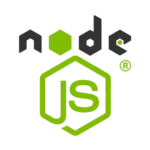Hire remote MongoDB developers that you can trust
Hire MongoDB developers from a unique network of 50,000+ pre-vetted offshore talents from Europe and Latin America, looking for a full-time contract. YouTeam developers stand apart for their ability to think like product managers and act like software architects. We also manage everything, so there’s zero overhead for your company.
Hire developers207 best MongoDB developers for hire on YouTeam in February 2025

Ramiro
Software Developer
Jelena
Front-End Developer
Ihor
Full-Stack Engineer
Serge
Full-Stack Developer
Nicolas
Senior Software Engineer
Alexander
Senior Scala and Java Developer
Serhii
Full-Stack Developer
Teddy
Senior Back-End Developer
Veselin
JavaScript DeveloperStart hiring to
see all talent
Hire
developers

Best Developer
JavaScript DeveloperTrusted by Fortune 500 companies and Y Combinator startups
Why hire MongoDB developers with YouTeam
 48-hour personalized matching
YouTeam handpicks the best-matched candidates.
48-hour personalized matching
YouTeam handpicks the best-matched candidates.
 Zero overhead
Locally-compliant contracts and billing
Zero overhead
Locally-compliant contracts and billing
 Dedicated white-glove support
Dedicated white-glove support






How to hire MongoDB developers with YouTeam
Share your requirements Set up a quick call with one of our Matching Experts — your dedicated contact at YouTeam.
Undergo Personalized Matching Your Matching Expert curates a candidate list, conducts pre-interviews, and ensures a perfect match for your needs—covering developers' skills, tech stack preferences, interests, and personality.
Meet the right candidates Review a list of candidates screened specifically for your request and pick the best for the interview stage. Average interview-to-hire ratio on YouTeam platforms: 1.75.
Hire and work with confidence YouTeam automates contract signing and invoicing through its secure system. Your dedicated Matching Expert stays with you throughout the collaboration with contractors.

Find developers skilled in related technology
More technologiesRead about MongoDB on our blog
 A Complete Guide to Hiring a Back-End Developer in 2024
A Complete Guide to Hiring a Back-End Developer in 2024
Svetlana Shevchuk
 25 Questions to Ask Before You Hire Web Developers in 2022
25 Questions to Ask Before You Hire Web Developers in 2022
Mary Atamaniuk
About MongoDB
- What is MongoDB?
- Key use cases for MongoDB
- MongoDB tech stack: Key components
- What is the role of a MongoDB developer?
- MongoDB developer experience levels
- Hiring MongoDB developers: Hard skills assessment questions
- What is the average salary for MongoDB developers?
- Types of MongoDB developers: freelancers, in-house engineers, and outsourced programmers
- Tasks and responsibilities of a MongoDB developer
- Skills to look for in a MongoDB developer
- How to write a MongoDB developer job description
MongoDB is a popular, open-source NoSQL database designed to handle high volumes of data across distributed systems. Unlike traditional relational databases, MongoDB uses a document-oriented data model, which stores data in flexible, JSON-like documents. This allows for a more dynamic and scalable approach, making it ideal for modern applications that need to handle large and complex datasets. First released in 2009 by MongoDB, Inc., MongoDB is particularly well-suited for cloud applications, real-time analytics, and high-performance systems where scalability, flexibility, and speed are critical.
MongoDB is widely adopted in industries requiring fast and scalable data handling. Here are some key applications where MongoDB excels:
- Big Data Applications: MongoDB’s ability to handle massive data volumes and its horizontal scaling make it perfect for big data applications, allowing businesses to analyze huge datasets quickly.
- Real-Time Analytics: MongoDB’s fast read/write capabilities are ideal for real-time data processing, such as user activity tracking, IoT devices, and fraud detection systems.
- Content Management Systems (CMS): MongoDB’s schema flexibility and indexing support provide developers with the tools to manage varied and unstructured content efficiently.
- Mobile and Web Applications: MongoDB’s distributed nature and rich query language make it a go-to choice for modern mobile and web applications, especially those that require real-time updates or data synchronization.
- E-commerce Platforms: The ability to quickly handle large data transactions makes MongoDB an ideal solution for developing e-commerce platforms, managing product catalogs, and processing orders seamlessly.
The MongoDB ecosystem offers a rich set of tools that help developers build, maintain, and scale their applications effectively:
- MongoDB Atlas: A cloud-based service that manages MongoDB clusters across AWS, Azure, and Google Cloud, providing automated backups, security, and monitoring.
- MongoDB Compass: A graphical user interface (GUI) tool that helps developers explore and manipulate data within their MongoDB collections visually.
- Mongoose: A popular Node.js library that provides schema-based solutions for modeling application data in MongoDB, adding structure and validation to the otherwise schema-less nature of MongoDB.
- Aggregation Framework: MongoDB’s aggregation pipeline allows developers to process and transform data efficiently, enabling complex queries for reporting and data analysis.
- Sharding: This feature ensures horizontal scaling by distributing data across multiple servers, helping MongoDB handle large data volumes and reducing query response times.
- Replica Sets: MongoDB offers high availability with replica sets, which provide automatic failover and data redundancy by replicating data across multiple nodes.
A MongoDB developer is responsible for designing, optimizing, and managing databases using MongoDB’s architecture. Their role involves writing efficient queries, ensuring data consistency across clusters, and integrating MongoDB with back-end services. MongoDB developers often work closely with full-stack developers to implement features such as real-time analytics and data visualization. They are also responsible for maintaining the security and performance of MongoDB clusters, scaling applications, and debugging complex issues related to data storage and retrieval.
- Junior MongoDB Developers (0-2 years): Junior developers typically have a foundational understanding of MongoDB, including basic CRUD operations and indexing. They assist in writing queries, optimizing collections, and managing databases under the guidance of more senior developers.
- Mid-Level MongoDB Developers (3-5 years): These developers have a strong command of MongoDB’s architecture and best practices. They are proficient in designing efficient queries, managing clusters, and handling tasks like data migration, schema design, and indexing optimization.
- Senior MongoDB Developers (5+ years): Senior developers possess extensive experience in MongoDB and NoSQL systems. They are experts in sharding, replication, and tuning MongoDB for high performance. Additionally, they often lead development teams and make architectural decisions on data storage and scalability.
Here are some advanced questions to assess a MongoDB developer’s expertise:
1. How would you implement sharding in MongoDB to handle high data loads?
This question evaluates the developer’s understanding of MongoDB’s horizontal scaling capabilities through sharding.
2. Can you explain the Aggregation Framework and how you would use it to process large datasets?
This assesses the candidate’s ability to handle complex data transformation tasks using MongoDB’s aggregation features.
3. How do you optimize MongoDB queries for performance, and what tools would you use to identify bottlenecks?
This question explores the candidate’s knowledge of indexing, query optimization, and performance monitoring tools like MongoDB Profiler.
4. Describe how replication works in MongoDB. How would you ensure data consistency across a replica set?
This tests the developer’s understanding of MongoDB’s replication mechanisms, failover handling, and strategies for data consistency.
5. What are the key differences between MongoDB and relational databases, and when would you choose one over the other?
This question reveals their ability to make informed decisions based on the strengths and limitations of NoSQL vs. SQL databases.
6. How would you manage schema design in MongoDB for a high-traffic application?
This evaluates the candidate’s experience with schema design, particularly how they approach balancing flexibility with performance in a document-oriented system.
MongoDB developer salaries vary significantly depending on factors like location and experience. In the United States, a junior MongoDB developer earns between $60,000 and $85,000 per year, while mid-level developers can expect salaries ranging from $85,000 to $120,000. Senior developers with in-depth experience in MongoDB and large-scale systems typically earn between $120,000 and $160,000 annually.
In Eastern Europe, junior MongoDB developers earn between $25,000 and $40,000, while mid-level developers make around $40,000 to $65,000. Senior MongoDB developers in this region can command salaries from $65,000 to $90,000 per year.
In Latin America, the salary range for junior developers is around $20,000 to $35,000. Mid-level developers earn between $35,000 and $55,000, and senior developers can expect to earn between $55,000 and $75,000 annually.
When hiring MongoDB developers, you can choose between freelancers, in-house engineers, or outsourced talent, depending on your project requirements and budget:
- Freelancers: Ideal for short-term projects or consulting on specific MongoDB implementations. However, finding a freelancer with the right expertise for complex systems can be challenging.
- In-House Engineers: These developers are a long-term investment, offering consistency and deep integration with your internal teams, but they come with higher costs for salaries and infrastructure.
- Outsourced MongoDB Developers: Outsourcing offers flexibility, often with access to a larger talent pool from regions with lower cost-of-living, making it a good option for scaling quickly or handling short-term projects.
MongoDB developers are tasked with building and maintaining databases using MongoDB’s flexible, document-oriented approach. Key responsibilities include:
- Database Design and Development: Creating efficient database structures by implementing collections, documents, and indexes tailored to the application’s needs. MongoDB developers design schema-less models, ensuring the database is optimized for both read and write operations.
- Query Optimization: Writing and optimizing queries to ensure fast access to large datasets. This includes implementing aggregation pipelines for complex data analysis and troubleshooting slow queries by reviewing the database performance metrics.
- Data Management and Migration: Ensuring smooth data migrations from legacy systems or relational databases to MongoDB, while preserving data integrity and minimizing downtime.
- Database Security: Implementing security best practices, including role-based access control (RBAC), data encryption, and authentication mechanisms to safeguard sensitive information.
- Scaling and Replication: Managing MongoDB’s replication features to ensure high availability, and configuring sharding for horizontal scalability as databases grow in size and complexity.
- Monitoring and Maintenance: Regularly monitoring the performance of MongoDB clusters using tools like MongoDB Atlas or third-party solutions to ensure optimal uptime and database health. Developers must also plan and perform regular backups, as well as system upgrades.
When hiring a MongoDB developer, there are several key skills that should be evaluated to ensure they can handle the responsibilities of the role effectively:
- Proficiency with NoSQL Databases: Candidates should have a deep understanding of MongoDB’s architecture, including collections, documents, and BSON (Binary JSON) format. Experience with NoSQL databases in general is beneficial for better comprehension of MongoDB’s advantages.
- Expertise in Query Optimization: The ability to write efficient queries using MongoDB’s query language, aggregation framework, and indexing techniques is crucial. Developers should know how to optimize performance through index management, query profiling, and sharding strategies.
- Familiarity with Replication and Sharding: Advanced MongoDB developers must be proficient in configuring replication to ensure data availability and sharding to distribute data across clusters for improved performance and scalability.
- Experience with Cloud Platforms: Many MongoDB instances are hosted on cloud services such as AWS, Azure, or Google Cloud. Experience with MongoDB Atlas (a managed cloud solution for MongoDB) is highly valuable.
- Security Best Practices: MongoDB developers need to understand security features like access control, encryption, and data backup strategies to safeguard the database against breaches and data loss.
- Integration with Back-End Systems: A strong understanding of how MongoDB integrates with back-end technologies like Node.js, Python, or Java, as well as front-end frameworks when building full-stack applications.
Writing a comprehensive job description for a MongoDB developer is key to attracting qualified candidates. Here’s a structure you can follow:
1. Job Title: Be specific, such as “Senior MongoDB Developer” or “MongoDB Database Administrator,” depending on the role.
2. Company Overview: Briefly introduce your company, its mission, and the kind of projects or products the developer would be working on.
3. Responsibilities:
- Design, implement, and manage MongoDB databases.
- Optimize database queries for high performance and scalability.
- Configure replication and sharding for data availability and distribution.
- Collaborate with development teams to integrate MongoDB with other systems and services.
- Ensure data security and implement best practices for database management.
- Monitor database health and troubleshoot any performance issues.
4. Required Skills:
- Extensive experience with MongoDB and other NoSQL databases.
- Proficiency in query optimization and data modeling.
- Familiarity with MongoDB Atlas or similar cloud-based database services.
- Strong understanding of replication, sharding, and clustering.
- Experience with security practices such as encryption and user access control.
5. Preferred Qualifications:
- Bachelor’s degree in Computer Science or related field.
- Experience with back-end technologies such as Node.js, Python, or Java.
- Knowledge of front-end technologies and how they interact with MongoDB.
- Familiarity with DevOps practices for database deployment and maintenance.
6. Salary and Benefits: Provide a competitive salary range and mention any benefits like health insurance, flexible work hours, or professional development opportunities.
FAQ about Hiring MongoDB developer
Why choose YouTeam to hire MongoDB developers?
YouTeam offers access to a highly qualified pool of MongoDB developers, helping you scale your team quickly. Each developer is thoroughly vetted, ensuring their skills, experience, and reliability. With partnerships across 500+ development agencies and over 50,000 developers, you can receive qualified candidates within 48 hours, making it a fast and reliable solution for your hiring needs.
How does YouTeam vet MongoDB developers?
YouTeam follows a multi-stage vetting process. First, developers are sourced from trusted development agencies, ensuring they meet the necessary skill and experience requirements. Pre-screened candidates are then forwarded to clients for further interviews, allowing them to select the best fit based on specific project needs.
How much does it cost to hire the best MongoDB developers through YouTeam?
The cost of hiring MongoDB developers on YouTeam varies based on factors like expertise, location, and skills. On average, a MongoDB developer through YouTeam charges around $52 per hour, though rates can fluctuate depending on specific project requirements.
How quickly can you hire with YouTeam?
With YouTeam, you can hire developers faster than traditional methods. Here’s why:
1. Shortlist in 48 hours: Powered by our AI Matchmaker and human experts, we deliver a tailored shortlist of vetted candidates within just 48 hours.
2. Larger talent pool: As a marketplace, YouTeam offers access to a broader range of developers from hundreds of partner agencies, giving you more options than typical outsourcing agencies.
3. Seamless process: From the moment you request a call, our Matching Experts handle the rest, ensuring you quickly receive top-quality candidates who match your precise requirements.
YouTeam helps its clients build development teams within just a few weeks, not months.
What is the no-risk trial period for YouTeam developers?
1-Month Trial: You can terminate the engagement at any time during the first month.
Free Replacements: If you’d like to replace a contractor, we’ll do it within two weeks, free of charge.
You can learn more by reading our Money-Back Guarantee.
How is YouTeam different from freelance portals for hiring MongoDB developers?
Unlike freelance platforms, YouTeam connects you with developers from trusted software development agencies, not freelancers. This ensures that developers have the necessary technical and soft skills, along with relevant experience. If a developer needs to be replaced unexpectedly, YouTeam can quickly provide a substitute of equal skill to avoid project delays.
Reviews
“It's just much more convenient to find a small team. I talk to one person, get 5 hand-picked CVs, interview candidates, hire the best ones – and I’m done!”
“Every time YouTeam sends me a list of potential developers, I am confident that I can interview pretty much anybody and they will be a good candidate.”
“The decision to use YouTeam was made by comparing them directly to the other candidates. As soon as I started talking to them, YouTeam adopted a hands-on approach. Time-wise, YouTeam also performed well.”
“We will definitely continue with them in the future. I’m so happy with their work that I’ve recommended them to my other company as well. There were no issues, it was really good. I gave a very loose brief, and the developer who worked for me had enough initiative to tighten it up by asking relevant questions. There was no messing around—it was done really well, with good, clean code.”
“YouTeam was very quick and responsive. I was presented with great candidates in just days, which was fantastic for me because we were looking to move fast. They had experience working on similar projects to exactly what we needed.”
“We wanted to boost our capacity for a period of six to twelve months. I decided to get a shot with YouTeam is that in any other place I can't say that I'm looking for a team of 5 developers with the possibility to scale. Now I returned to them again - this time for the confidence. If somebody is on the YouTube platform, you know that they've met a certain threshold of customer satisfaction, they've got a history of successful work elsewhere.”










